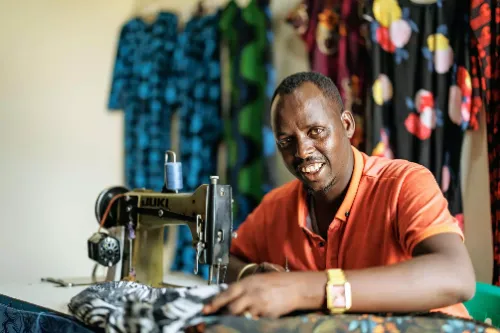Our Projects
Some Impactful Stories
- story
Impact!

View more impact photos
On the grid: Connecting refugee communities to solar power
folder_open News | 2024, Oct 25
Not long ago, the low hum of diesel-powered generators permeated throughout Sheder Refugee Camp. Though the generators provided some access to electricity, it was costly to operate, inconsistent, only lasted two to three hours a day, and emitted pollutants. It was difficult for small businesses to earn a steady income without reliable energy. By the time night fell, families not connected to the diesel generators made do with flashlights and candles and avoided traversing across the camp in the dark. The lack of access to reliable and affordable energy affected every part of life in Sheder.
“Because of the irregular electricity supply, I could only work for 3 hours out of the 12 work hours in the day,” said Siyad (all participant names have been changed to protect their privacy), who arrived at Sheder with his family. He supports his family through his work as a tailor. “I was only earning peanuts so I couldn't even afford to provide my family’s basic needs.”
Siyad is one of the more than 14,600 who currently reside at the northeastern Fafan Zone camp for displaced people. In 2008, Sheder Refugee Camp was established in the namesake town to support the displacement of people fleeing from conflict in the neighboring Somalia. Ethiopia is home to over 4.7 million forcibly displaced people, and it is estimated that less than 7% of those people have constant access to energy. When displacement occurs, a major challenge is in connecting people to electricity for their well-being and income—not only for those displaced, but also for their host communities, who are often already affected by a lack of access to clean and adequate energy.
